How to ask for what you want
LeadershipCatherine Brenner, Louise Adler and Sam Mostyn offered their advic...
Become a part of the FW family for as little as $1 per week.
Explore MembershipsTurn words into action. Work with us to build a more diverse and inclusive workplace.
Learn MoreHear from notable women around the country on topics including leadership, business, finance, wellness and culture.
Mark your diariesTwo days of inspiring keynote speeches, panel discussions and interactive sessions.
Learn MoreCatherine Brenner, Louise Adler and Sam Mostyn offered their advic...
Em Rusciano outlines four lessons we can all take from her own sei...
In our latest series, Making The Case, Future Women's arguer-in-ch...
Putting survivors of family violence at the centre of the story.
Listen NowA program for mid-career women and exceptional graduates to fast track their career journey.
Learn MoreConnect with expert mentors and an advisory board of like-minded women to solve a professional challenge.
Learn MoreGender equality advocates, policy makers, and thought leaders gathered to consider this year's Budget and what it does for women.
By Bojana Kos
Gender equality advocates, policy makers, and thought leaders gathered to consider this year's Budget and what it does for women.
By Bojana Kos
The night after the Federal Budget for 2022-23 was delivered, Sam Mostyn AO, Chair of the Women’s Economic Equality Taskforce, took a microphone during a Q&A session, brandished a copy of the Women’s Budget Statement, and shared her insights with a rapt audience.
“This is a huge, huge step.”
“Gender equality is central to Australia’s economic progress. If we don’t meet gender equality in this country, we will fail to meet our ambitions.”
Within minutes, Sex Discrimination Commissioner Kate Jenkins shared a startling admission with the room, but one that nearly everyone understood.
“I have read the [Women’s Budget] Statement. It’s better than Netflix for me to read that.”
It’s a sentiment that was shared throughout the National Ballroom at Hotel Realm, at Future Women’s inaugural Budget Dinner – Budgeting for Women’s Success – where politicians, policy makers and gender equality advocates gathered to consider the impact of this year’s Budget on women.
Minister for Women, Finance and the Public Service, Senator the Hon. Katy Gallagher was clear when she took the stage for her keynote address: this Budget was the beginning of a much longer journey, and an acknowledgement of all the hard work that’s gone into progressing gender equality so far.

Emma Fulu, Director of the Equality Institute answers a panel question.
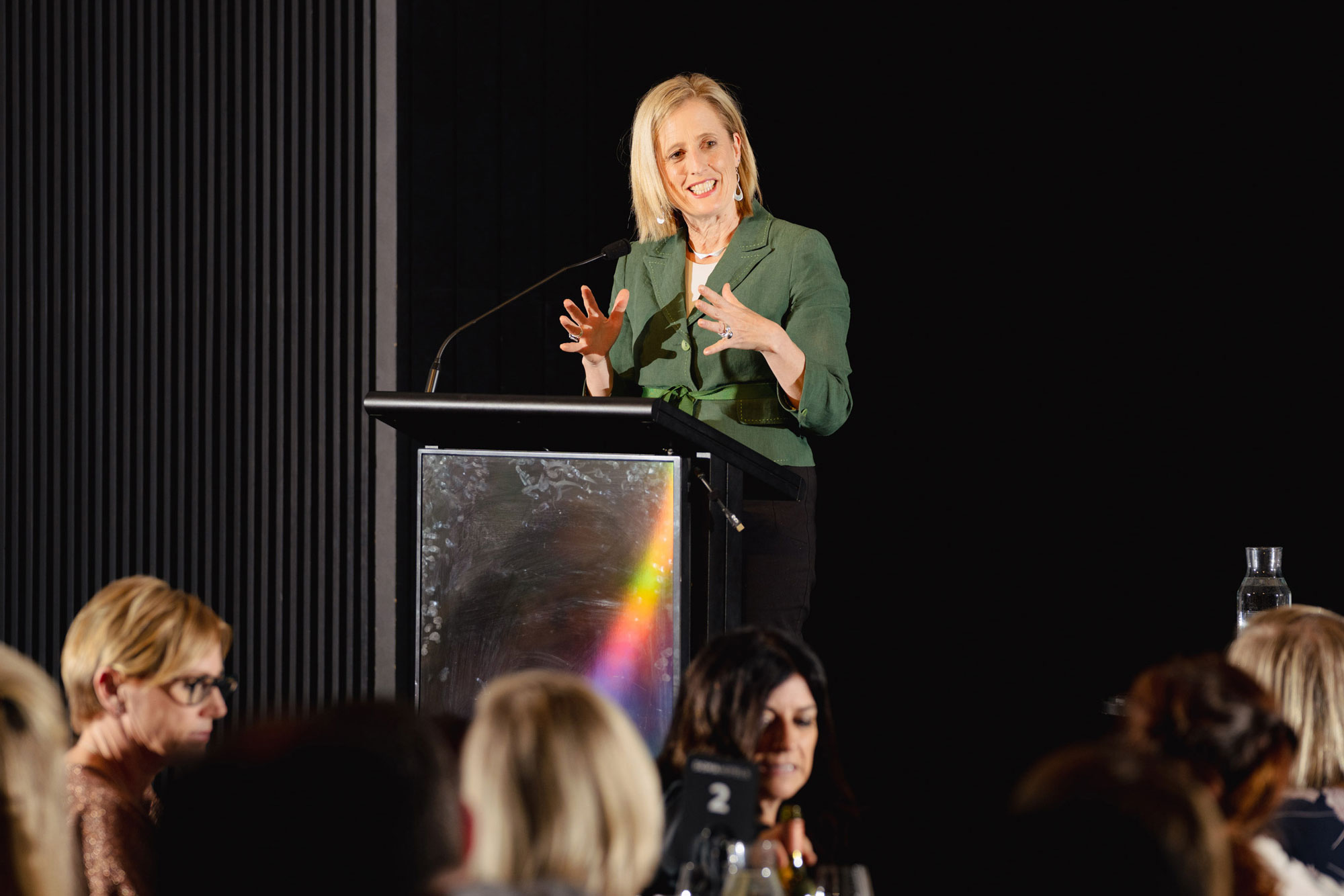
Minister for Women, Senator Katy Gallagher shares her insights on this year's Budget.
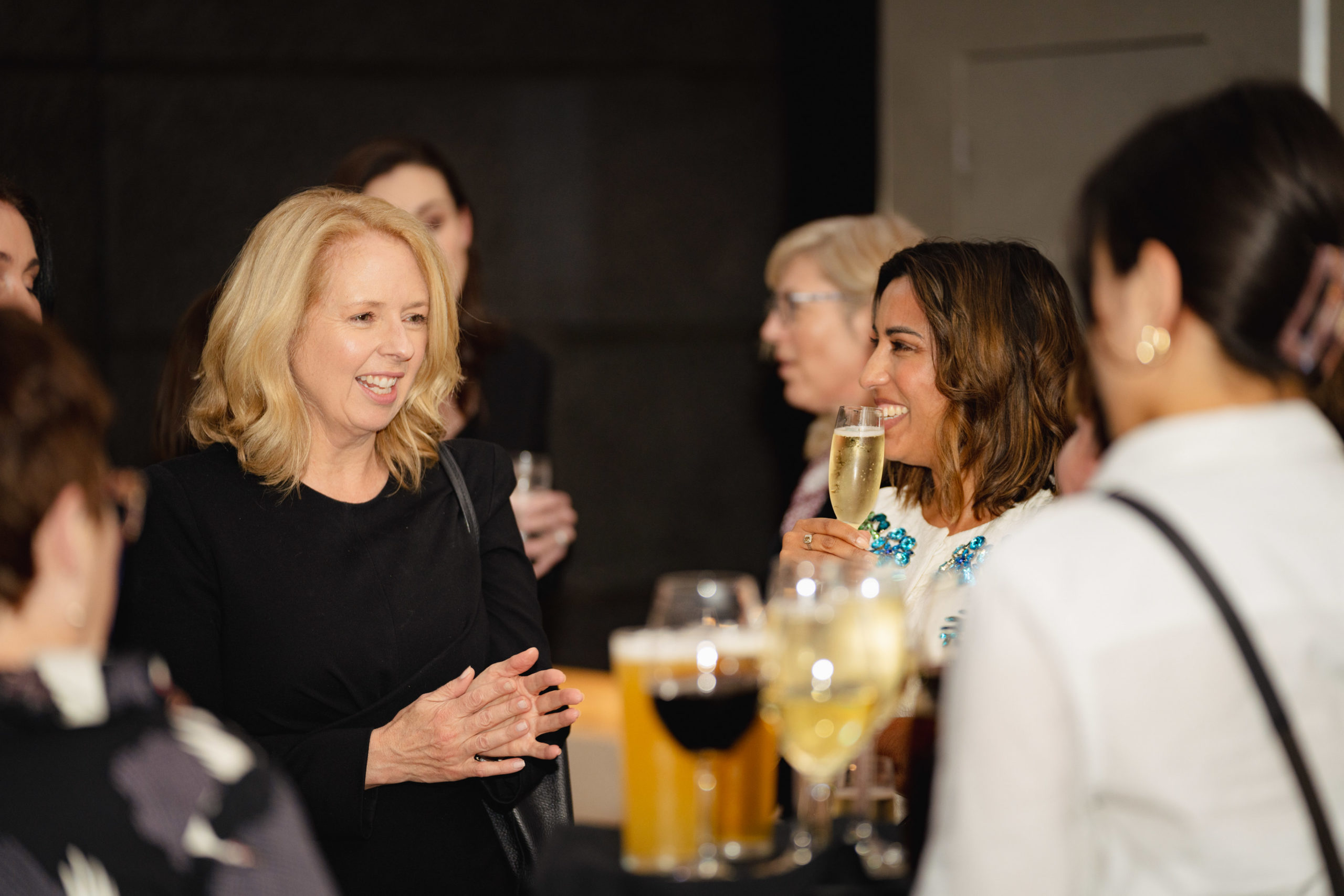
Helen McCabe mingles with attendees at the inaugural FW Budget Dinner.
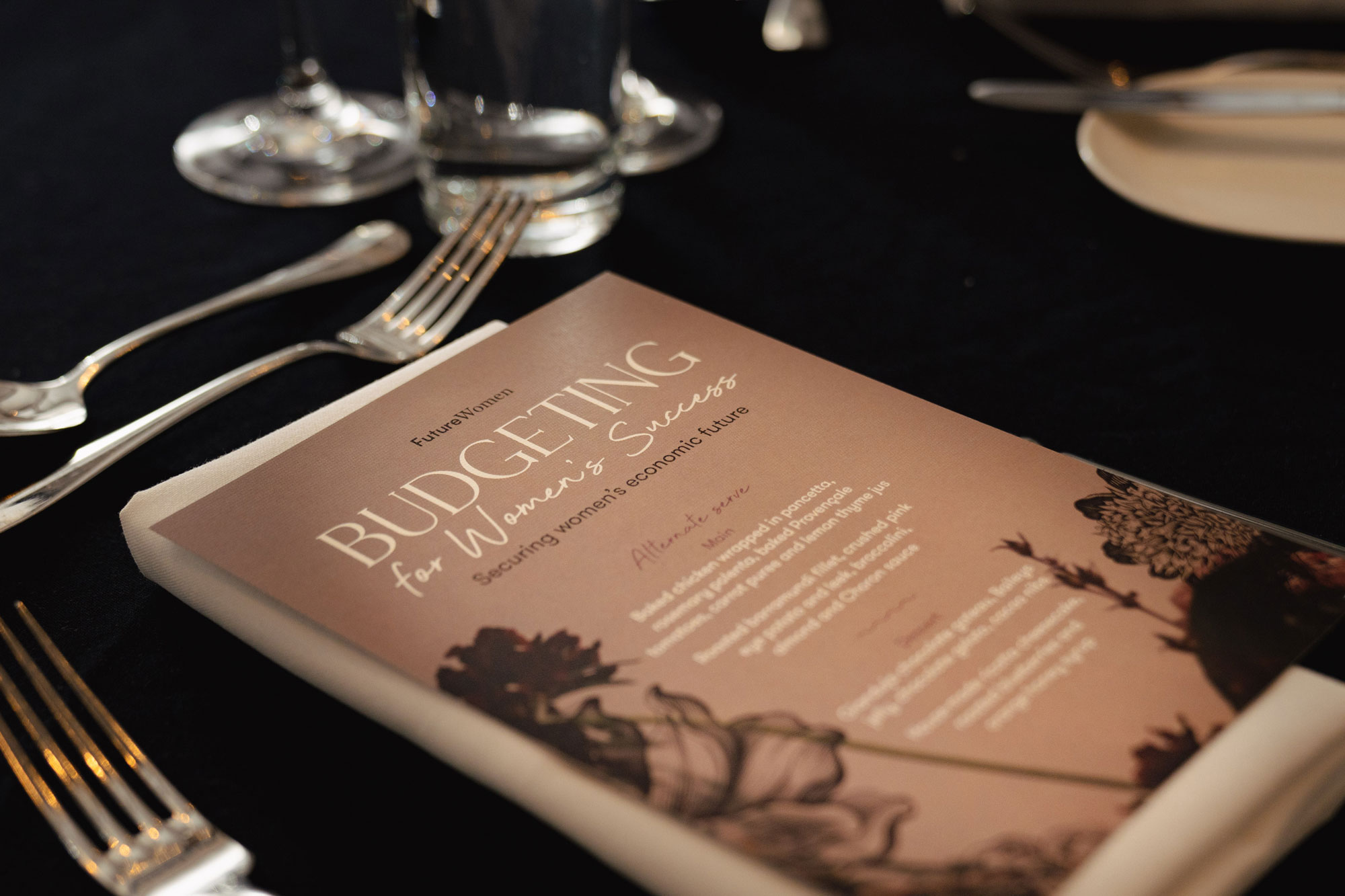
Attendees enjoyed dinner and expert opinions at Hotel Realm in Canberra.
“Something has to change. That’s why we’re interested in gender analysis in government decision making,” Minister Gallagher said.
“Until there is true gender equality, we can’t reach our full potential of the Australia that we could be.”
And as we already know, the path to gender equality requires input across the board and continuous improvements and shifts.
“We expect to be able to respond to feedback on how this [Budget] was presented – to make changes, develop it, grow, and respond.”
“Ultimately, we see improvements being made in each budget and every time we report so please – don’t hold back. The women’s sector tends not to,” shared Minister Gallagher, with a wry (and possibly proud) smile.
For Cassandra Goldie, CEO of the Australian Council of Social Services – the centring of women and the realities of their lived experiences was key.
“What’s so crucial for us, I think, is to ensure that we are in solidarity. If we put the experience of people with the least at the front of design, we usually get it right for everybody,” Ms Goldie said.
The panel, hosted by Future Women’s Managing Director Helen McCabe and Deputy Managing Director Jamila Rizvi, also examined the structural reform needed to level the professional playing field for women.
“We haven’t reduced the standard working week length for a century,” stated Emma Dawson, Executive Director of Per Capita.

Attendees mingle at the FW inaugural Budget Dinner.
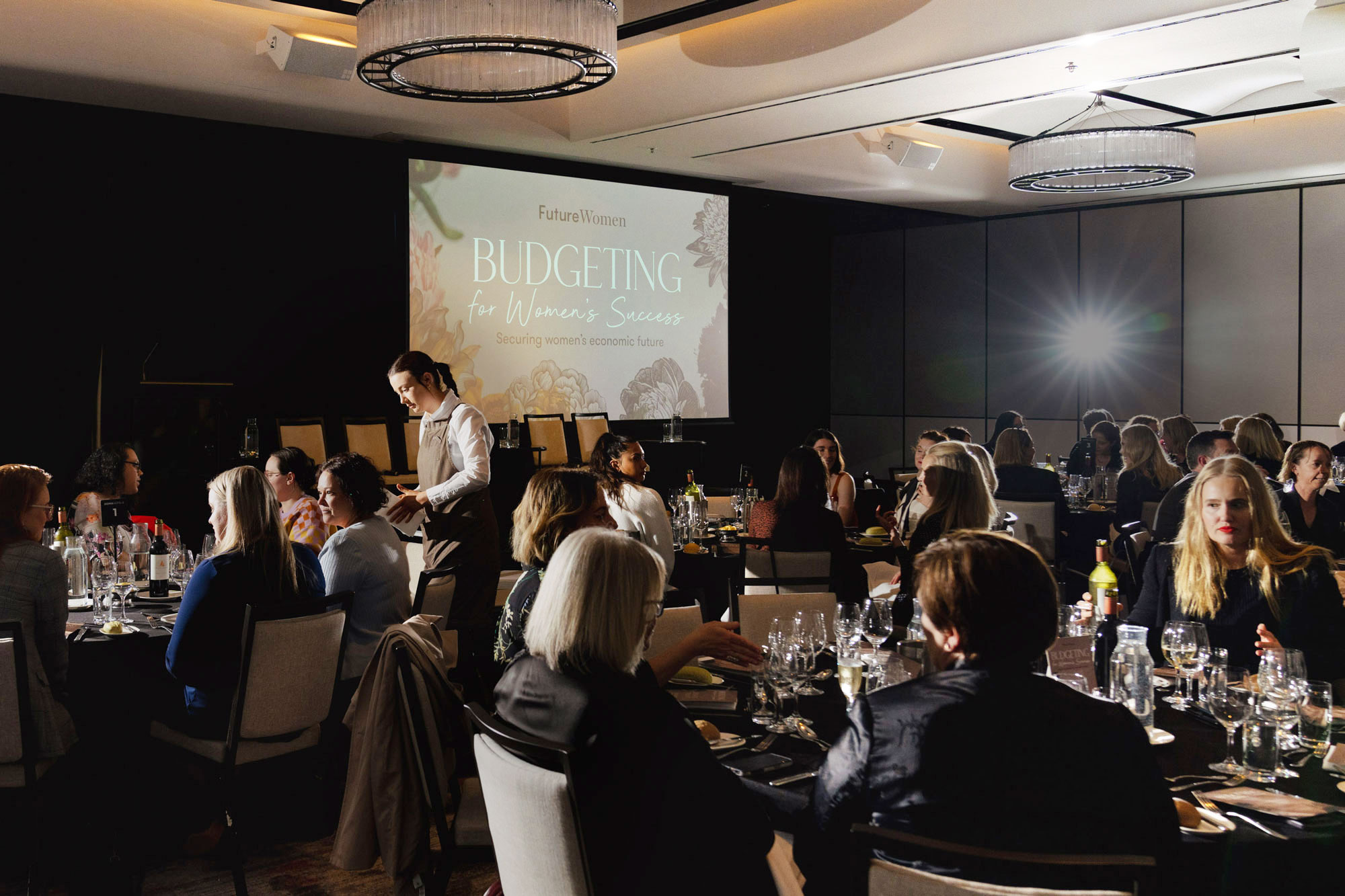
Attendees enjoyed dinner and expert opinions at Hotel Realm in Canberra.
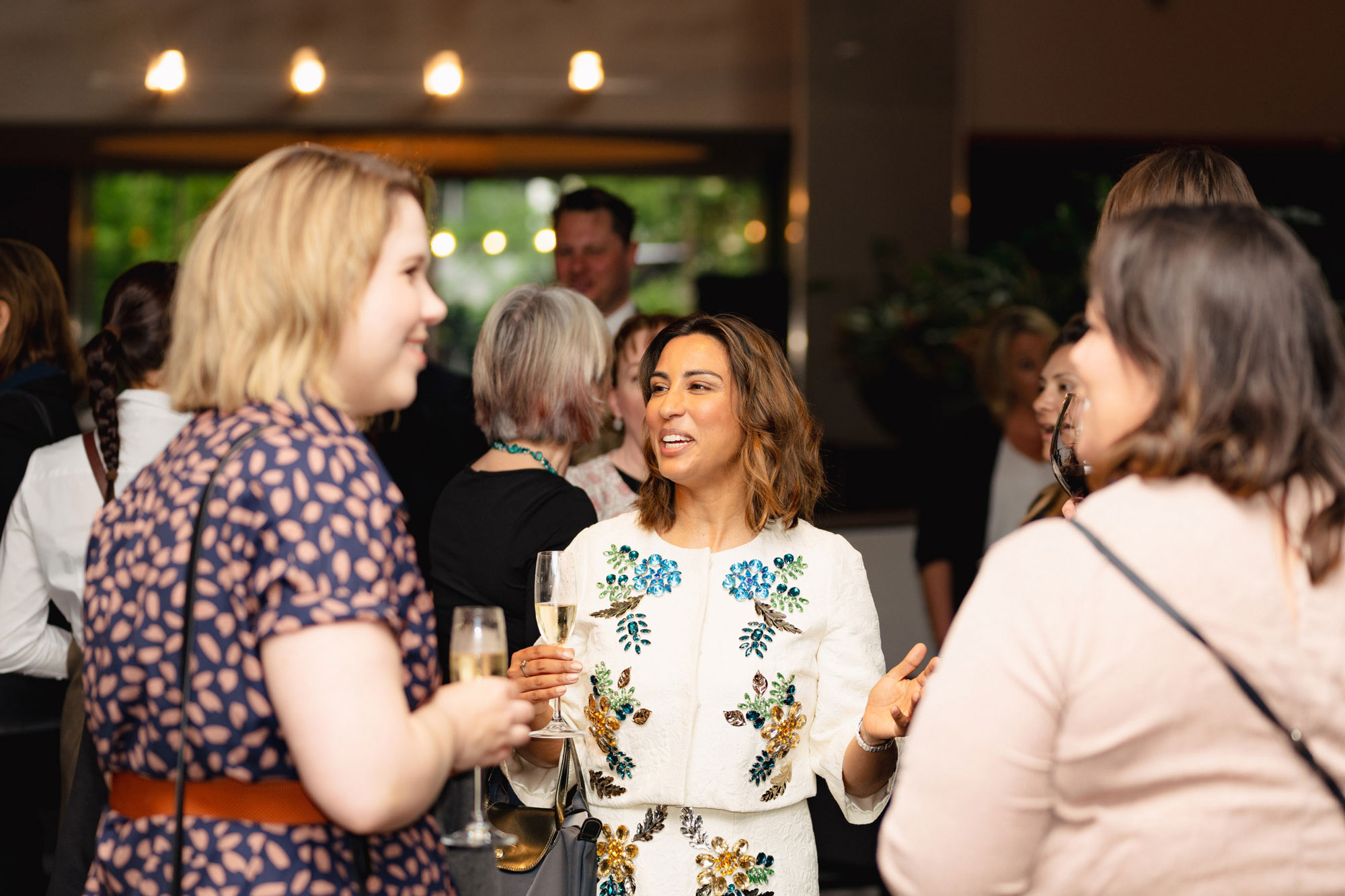
Emma Fulu, Director of Equality Institute, mingles with attendees.
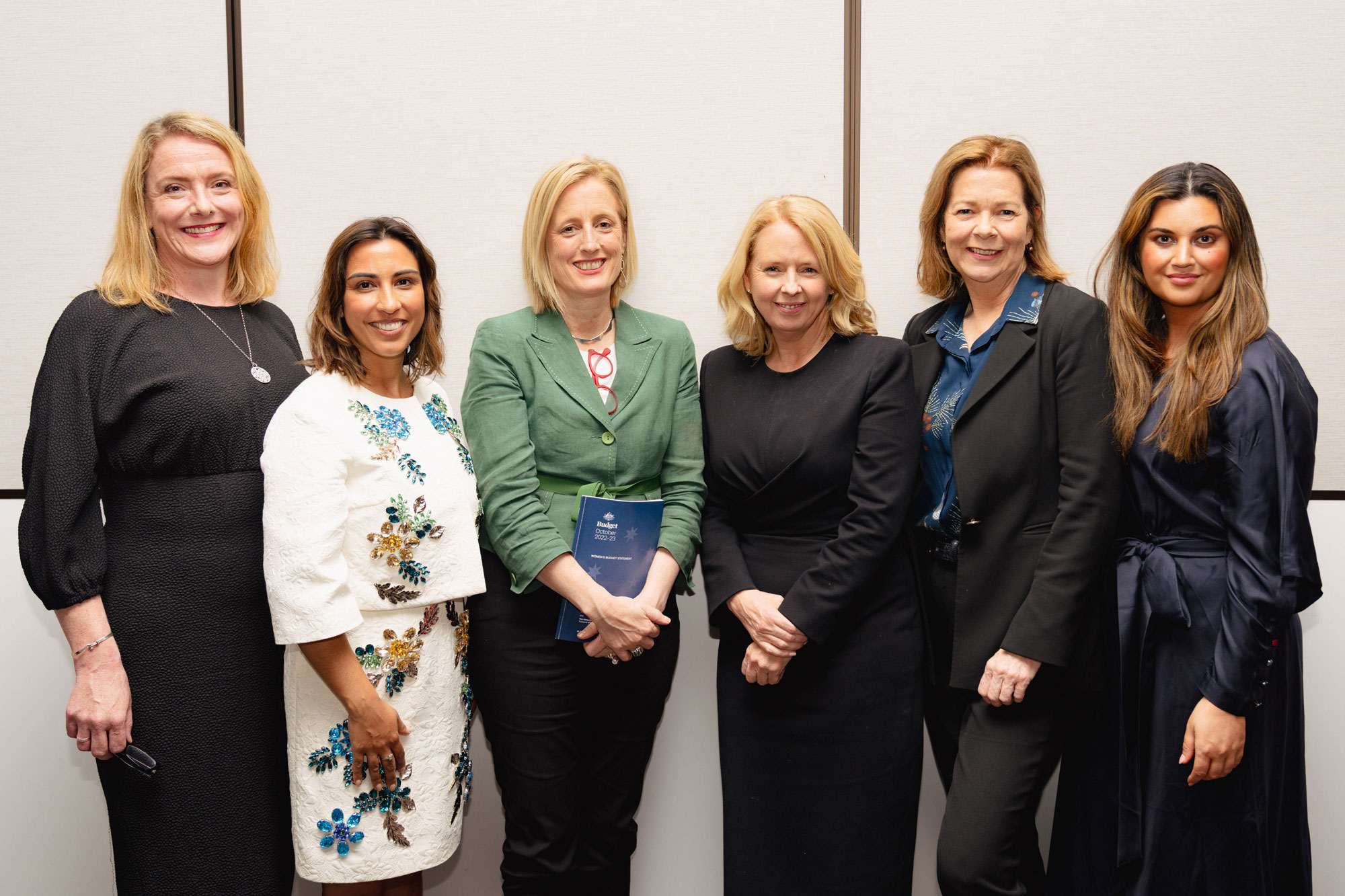
Emma Dawson, Emma Fulu, Senator Katy Gallagher, Helen McCabe, Michele O'Neil and Jamila Rizvi.
“A four day working week would mean that men have more time to pick up that domestic labour.”
Across the panel, praise flowed for the movement seen on issues like paid parental leave, increased access to childcare and ending violence against women and children.
“The provisions dealing with really urgent cost of living matters are so important, particularly for working women,” said Michele O’Neil, President of the Australian Council of Trade Unions.
“Making childcare, early childhood education and care more affordable and accessible is critical for women to be able to return to work in the way that they want.”
Throughout the evening, there was a sense of the immense work that has gone into furthering the cause of gender equality in Australia, and an atmosphere of celebration, which panellist Emma Fulu, founder and Director of the Equality Institute summarised best.
“I do think there’s a genuine recognition, perhaps for the first time in many years, that we have a serious problem when it comes to gender equality. It’s named. That’s really important.”
“People say that change takes time… But actually, change takes action.”
As the plates were cleared away and questions flew back and forth between panellists, hosts and the audience, Kate Jenkins likened the march toward equality to pushing an elephant up against a house.
“You’re pushing, nothing seems to be changing, but the foundations are shaking. And at some point, the elephant knocks the house over.
“People say that change takes time… But actually, change takes action.”
It’s something we know well. And it’s why we continue to work together to address the inequalities that pervade our workplaces, our communities and our country.
With support from Uber and The Mandarin
If you’re not a member, sign up to our newsletter to get the best of Future Women in your inbox.
